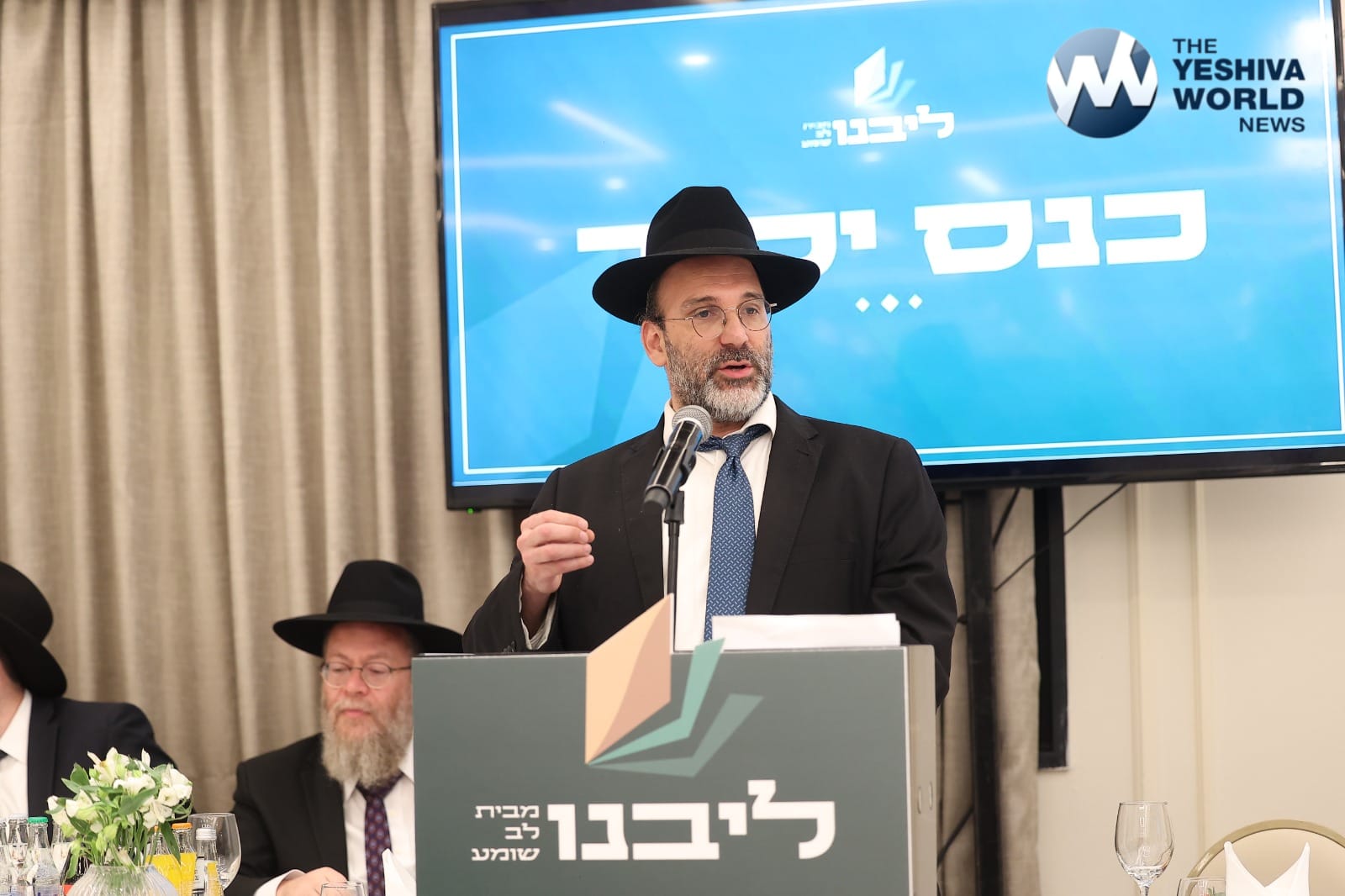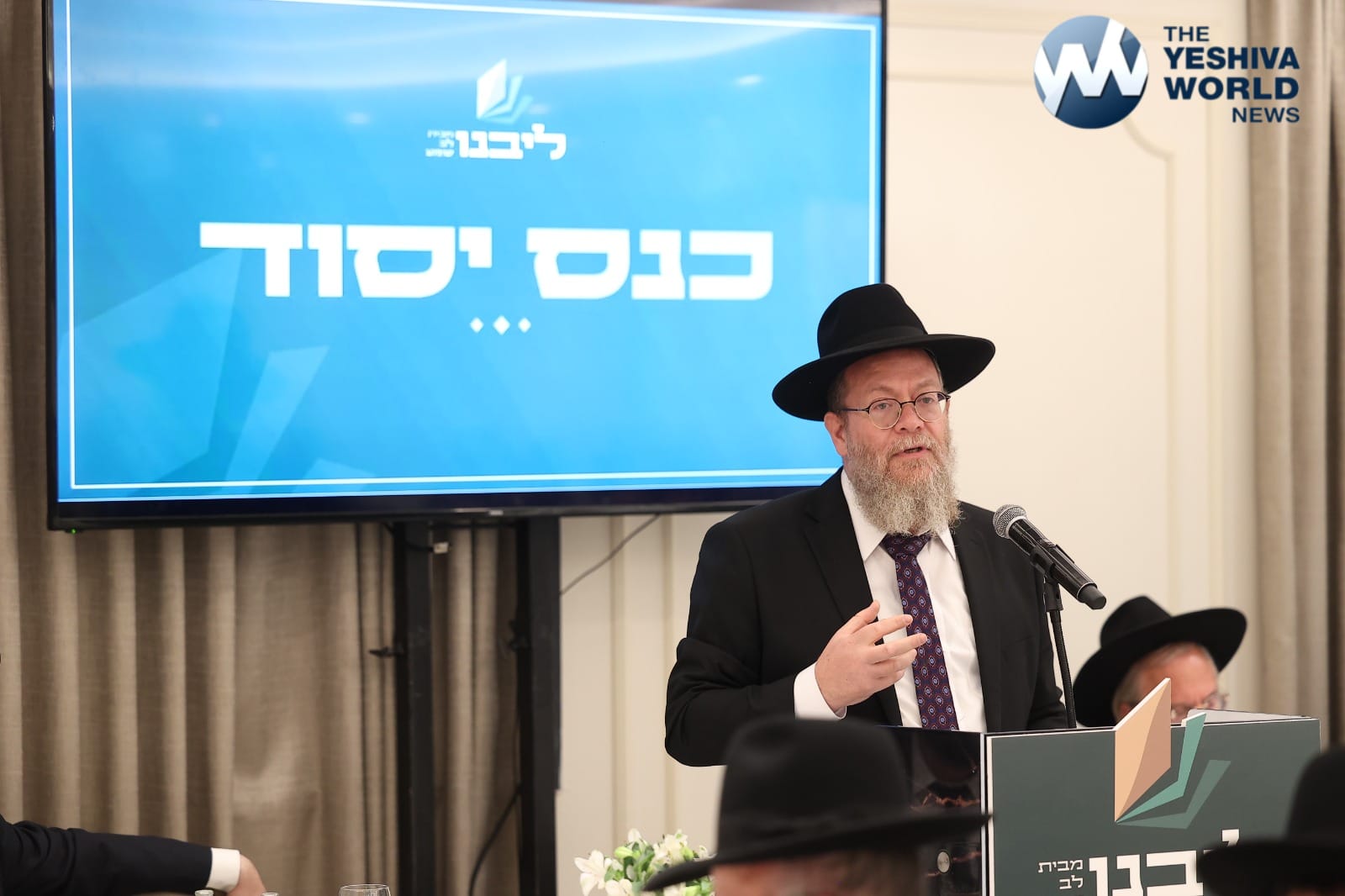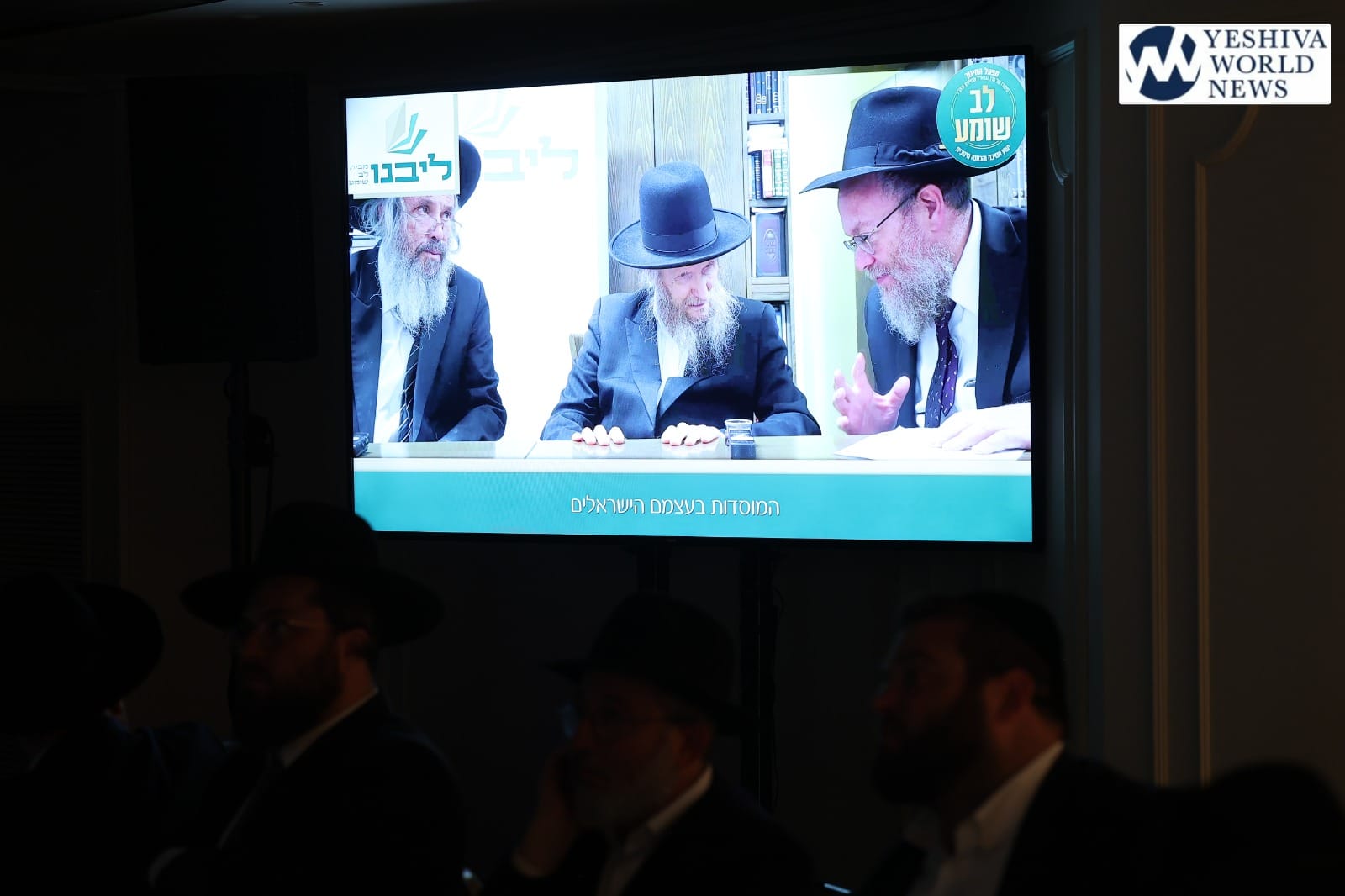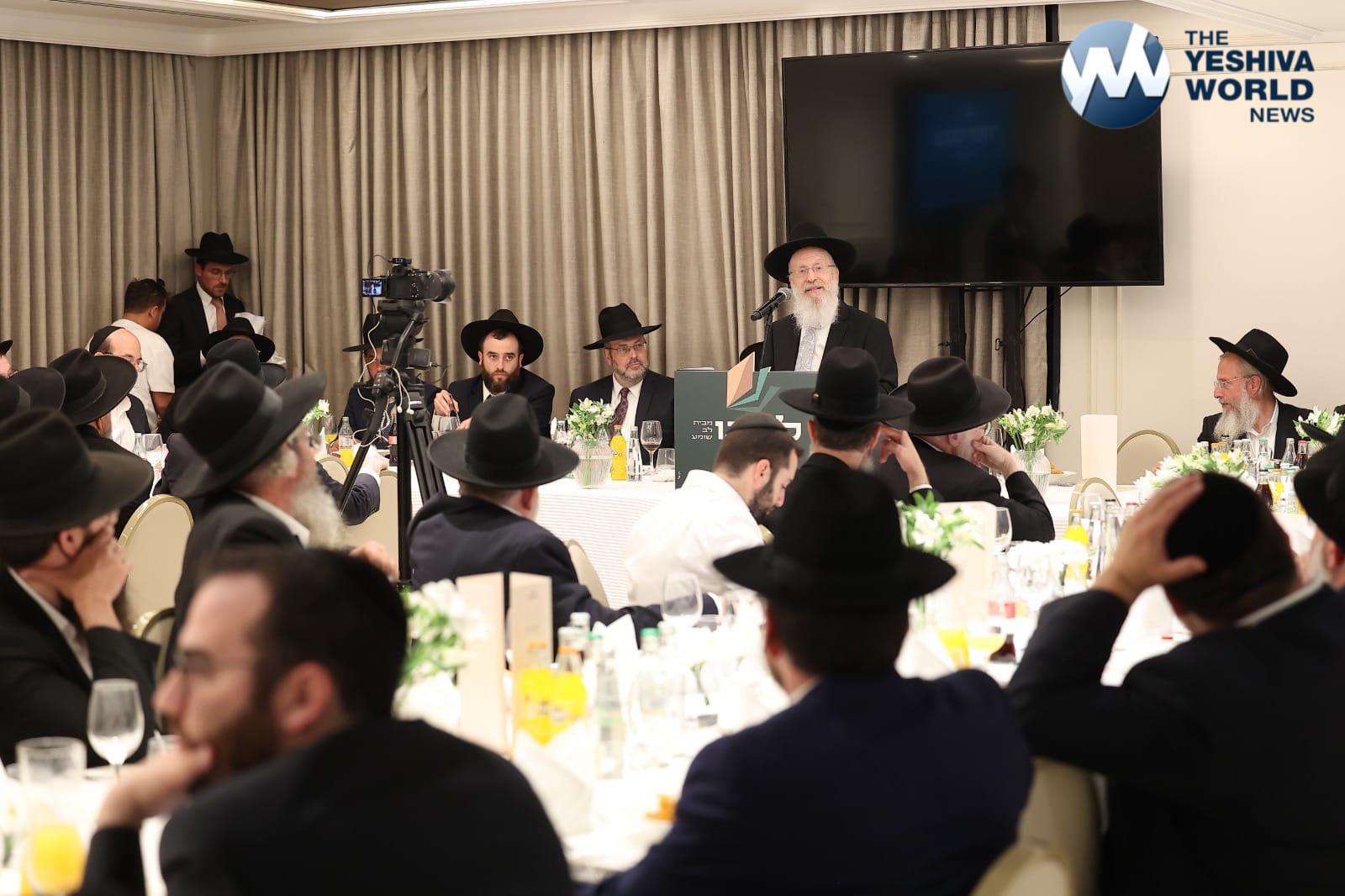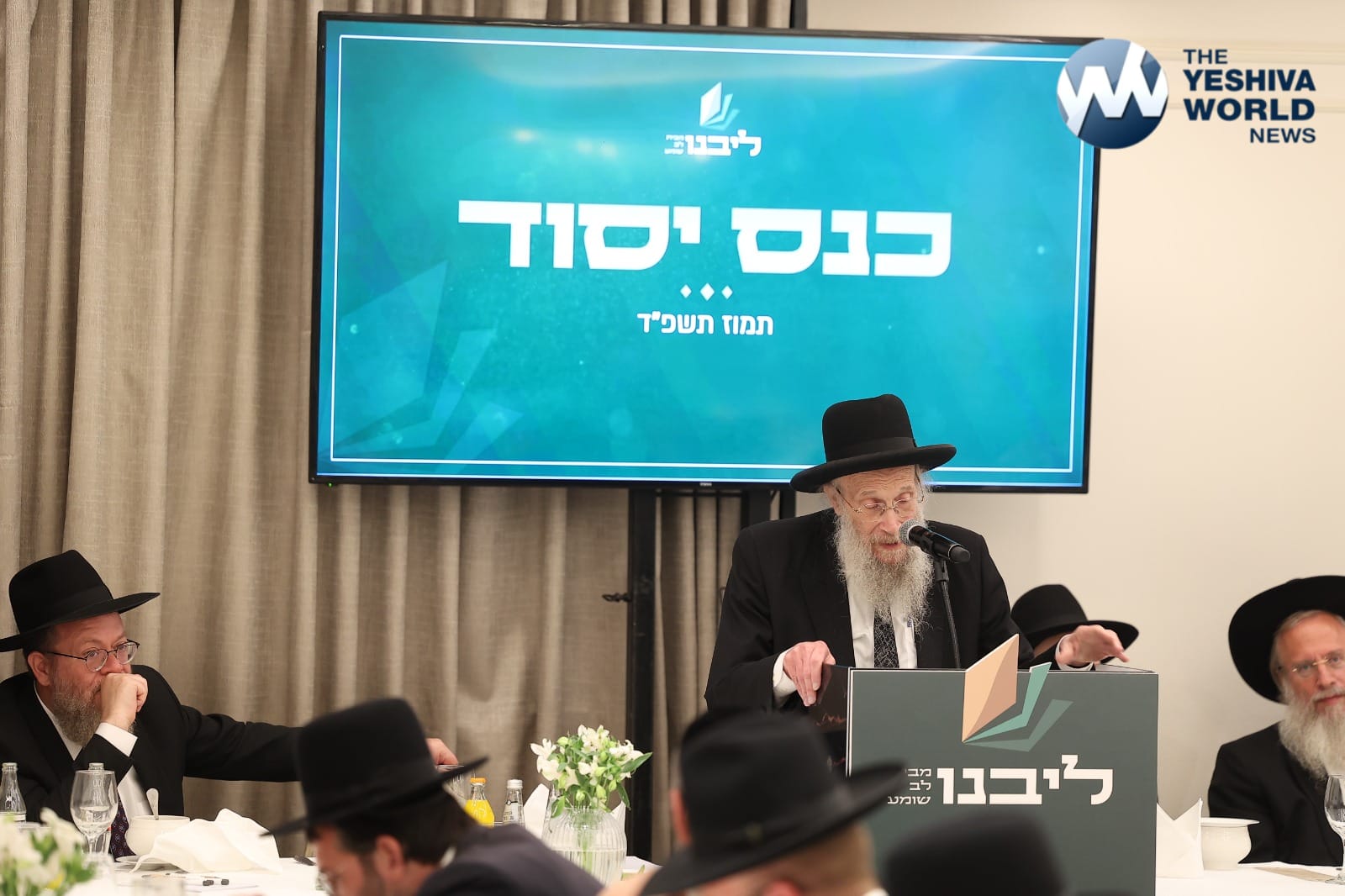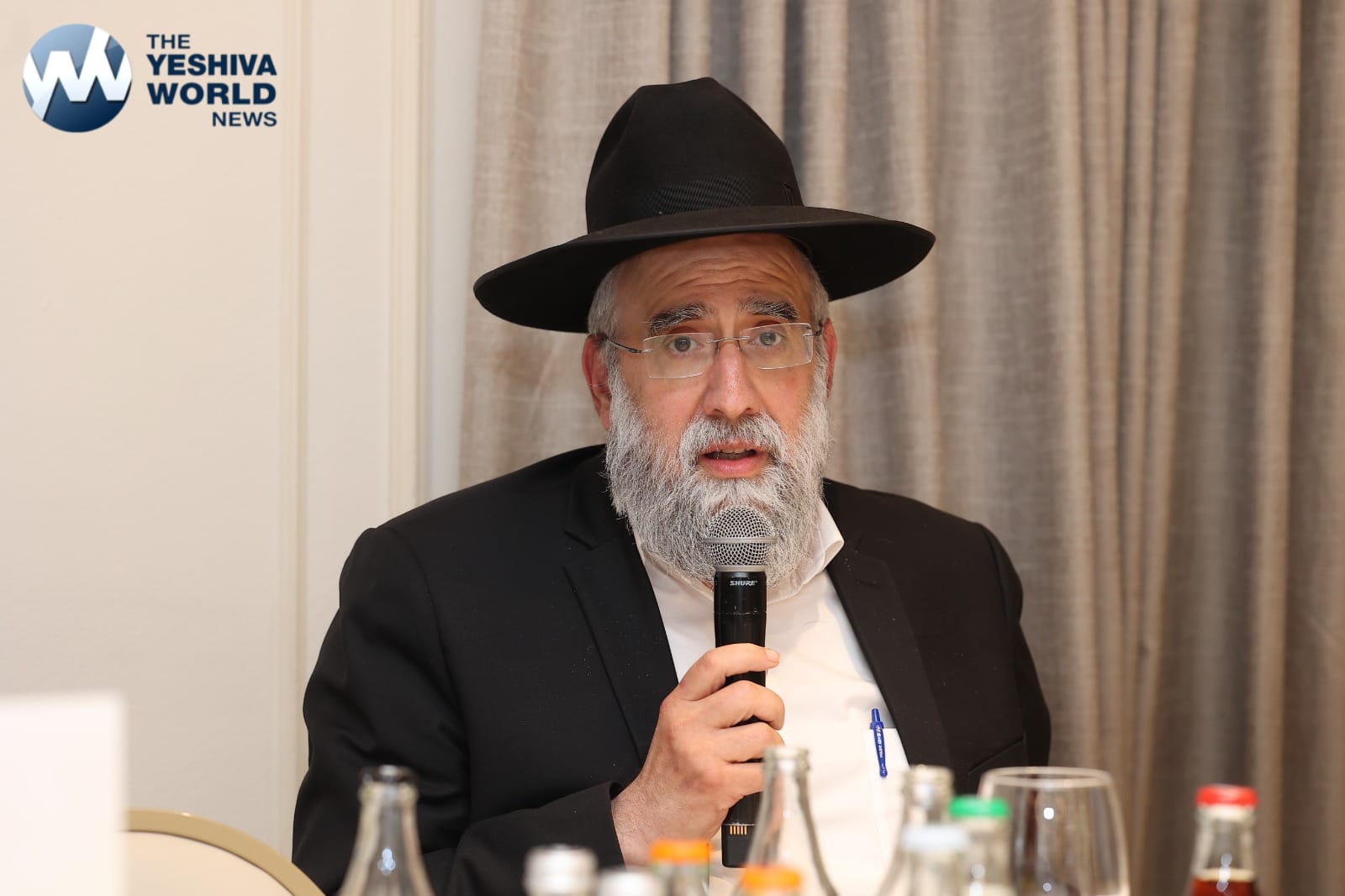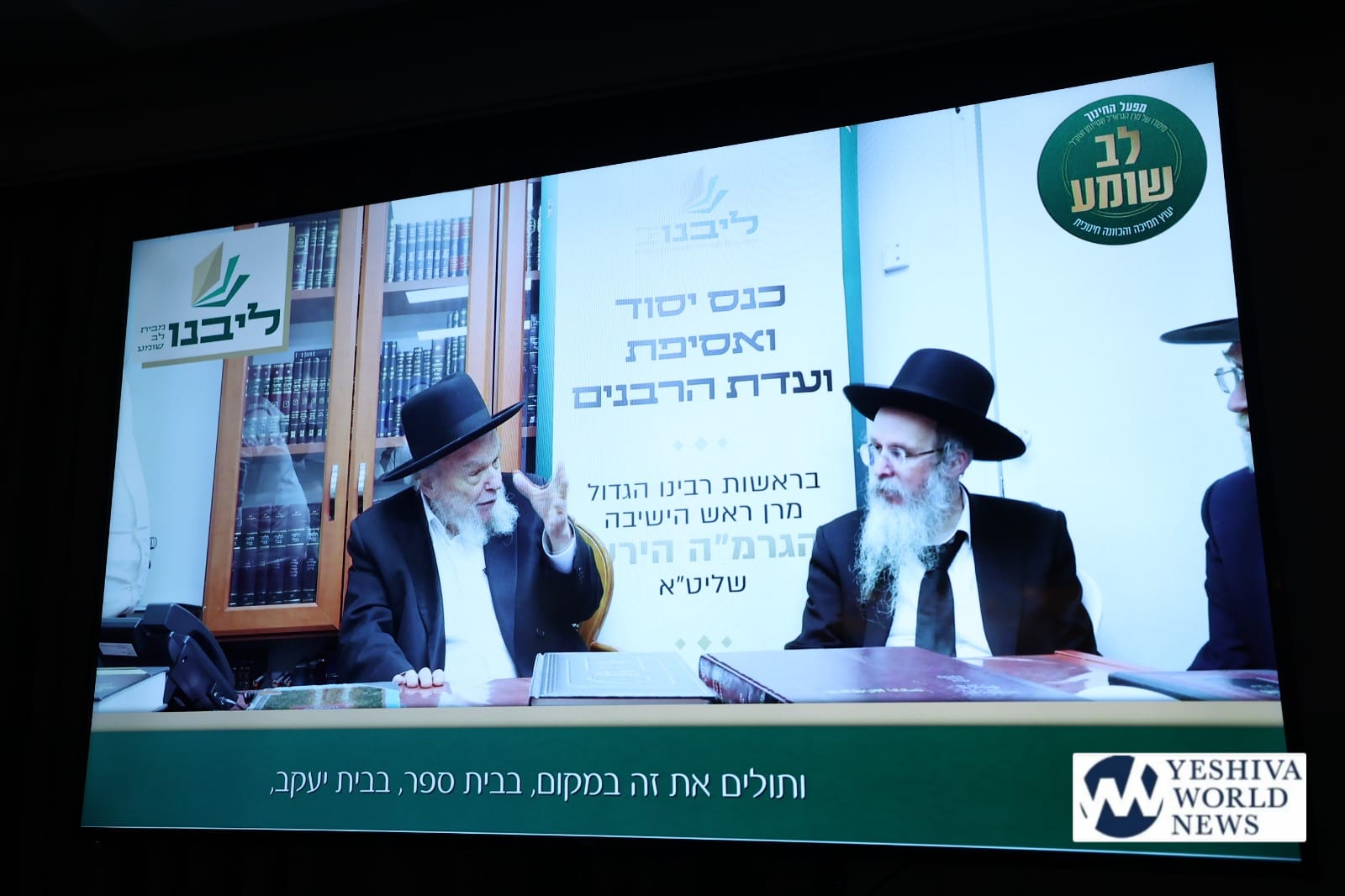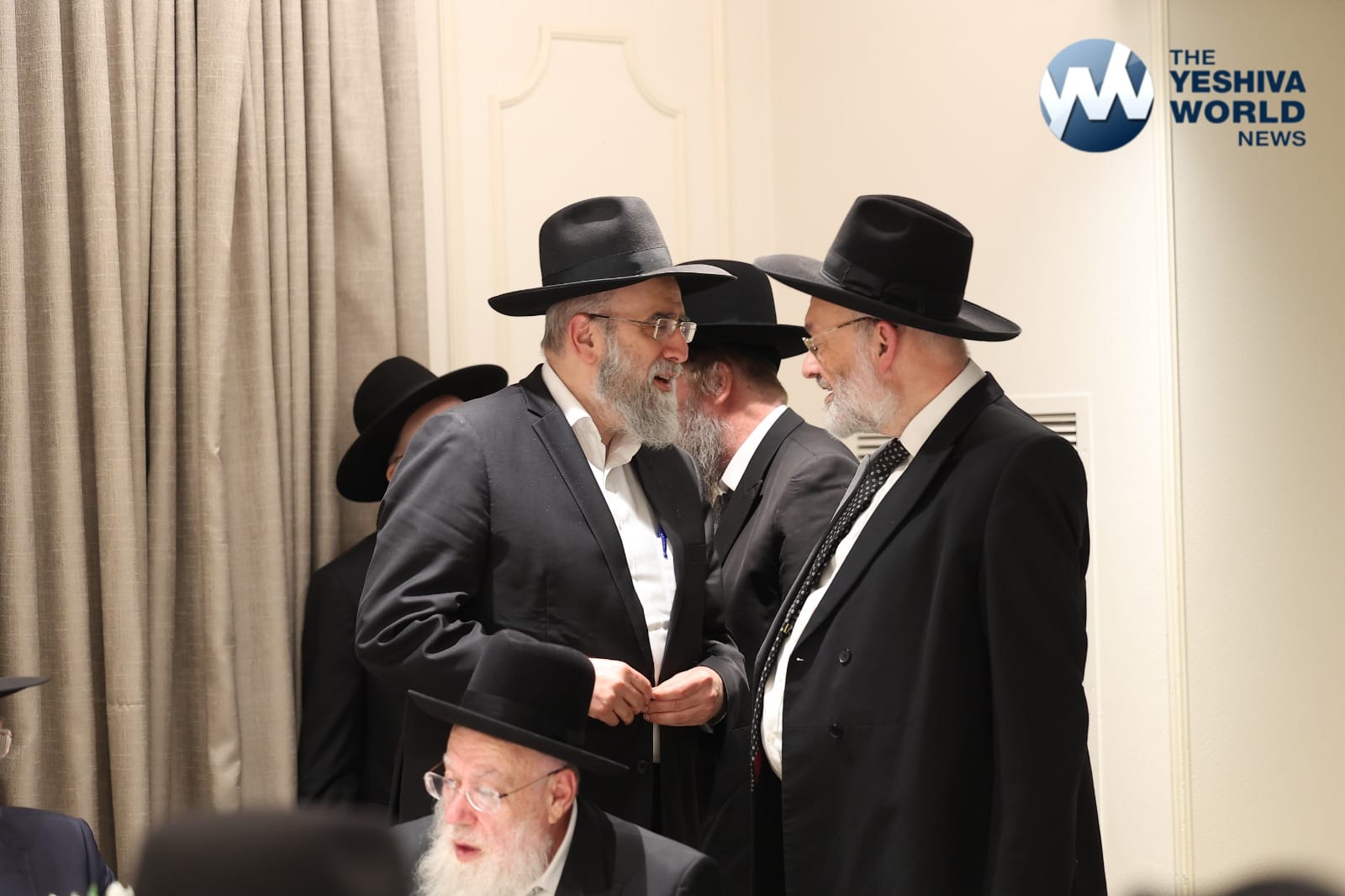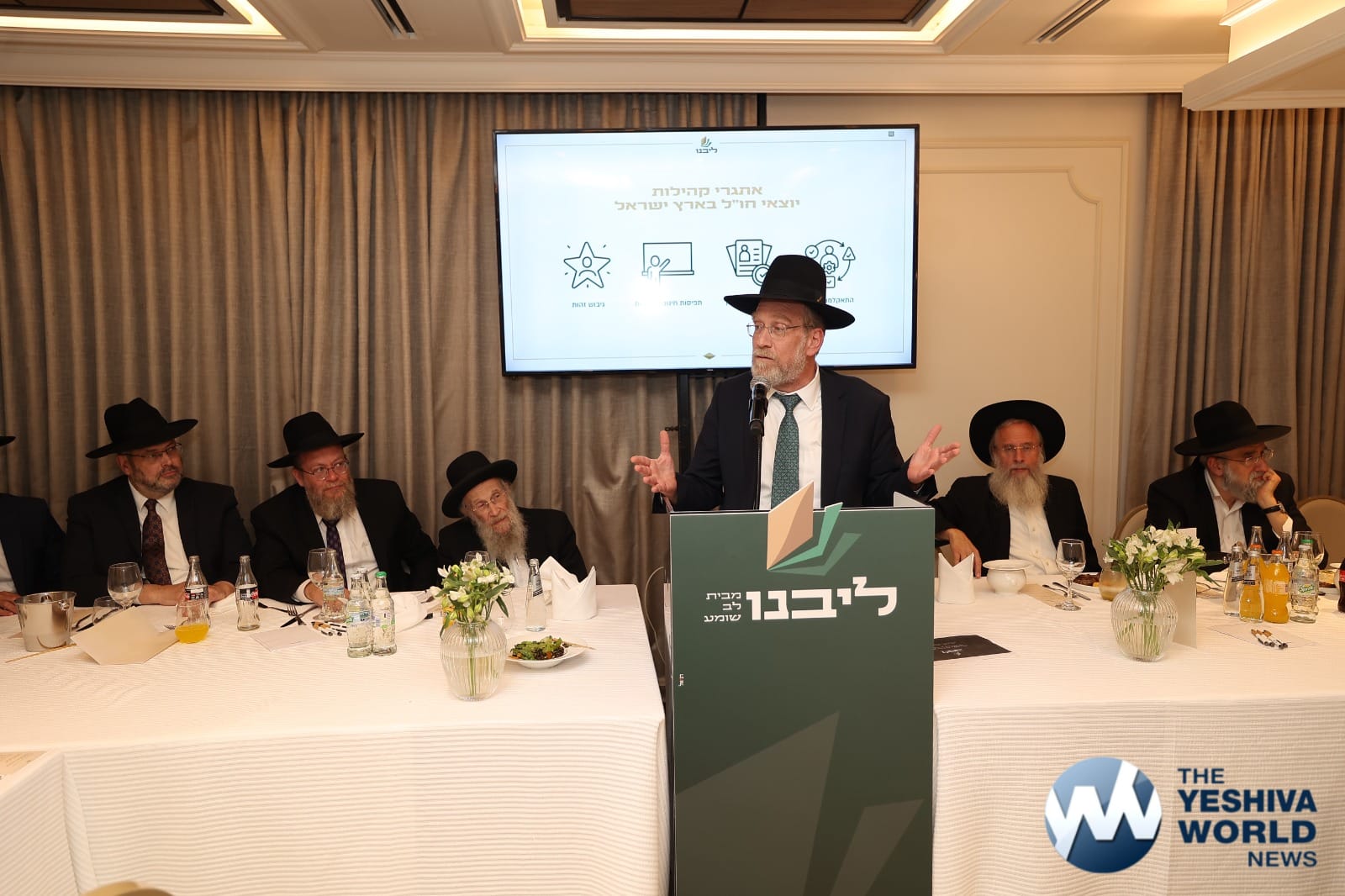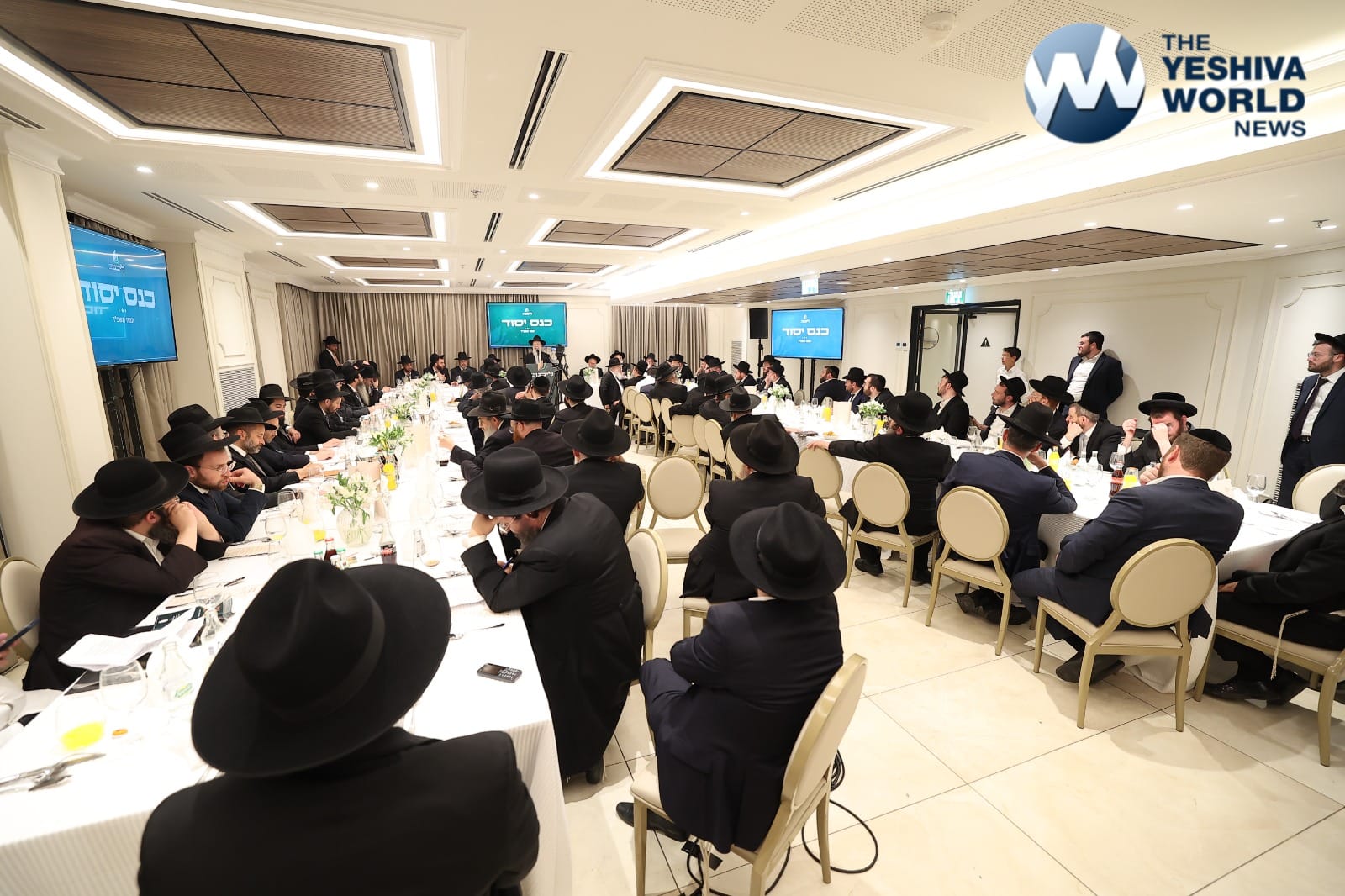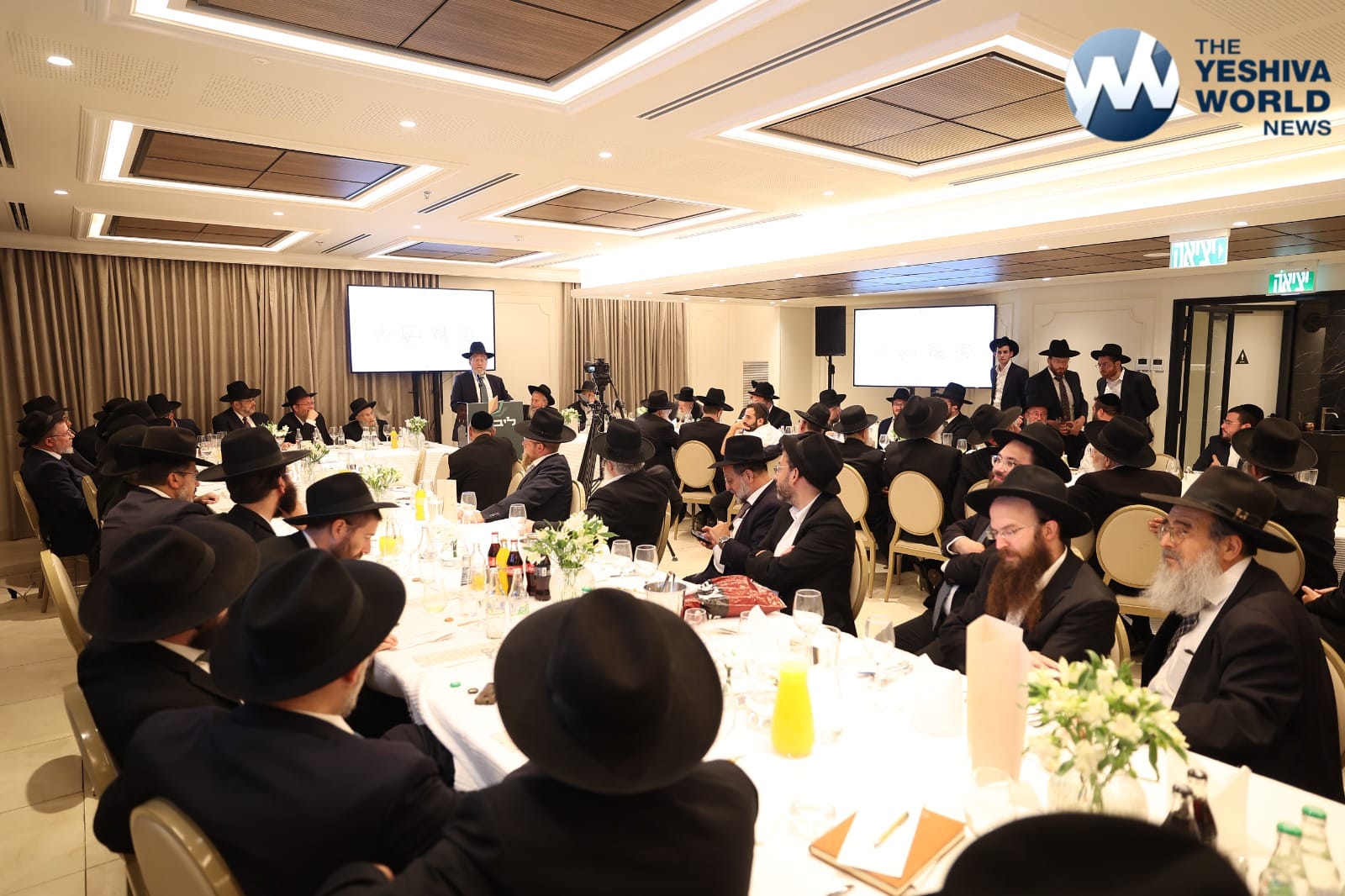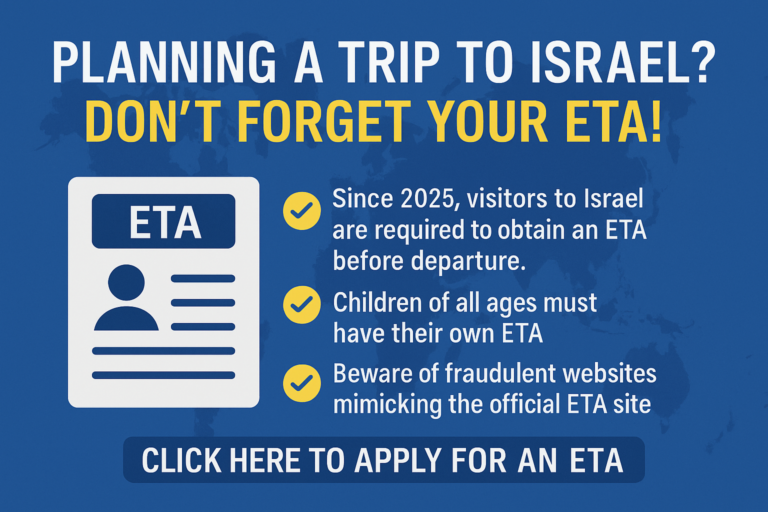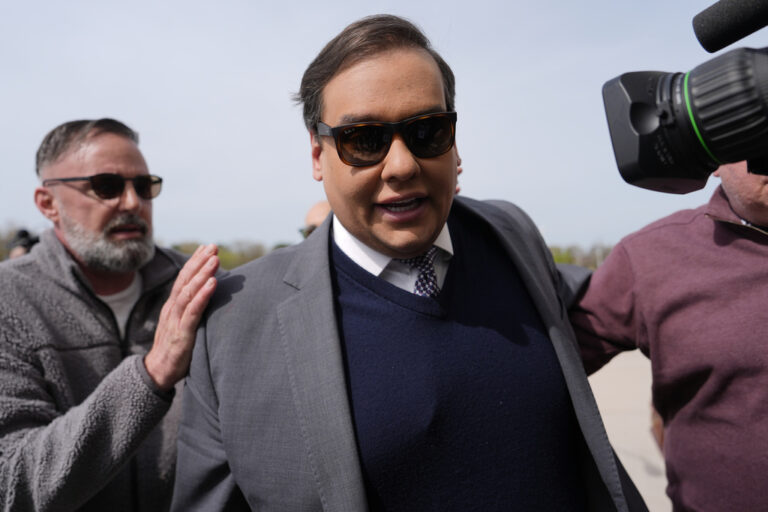By Avi Shiff
A conference held last Tuesday on Rechov Yirmiyahu in Yerushalayim was a truly remarkable sight, as rabbonim from kehillos and mosdos catering to families from chutz la’aretz convened with mechanchim and administrators from Israeli Talmud Torahs and mosdos hachinuch. The purpose of the conference was to announce the Leebaynu project, aimed at providing educational guidance and support to bridge the gap between Americans who live in Eretz Yisroel and Israeli educational institutions, yeshivos, rabbonim, and mechanchim.
The initiative was spearheaded by MK Yitzchok Pindrus and Rabbi Nechemya Malinowitz, known for his efforts on behalf of kehillos in the Diaspora, alongside Rabbi Eliav Miller, chairman of the Lev Shomea organization, who have all recognized the complex challenges faced by Americans and their families who live in Eretz Yisroel.
“This evening is a pinnacle moment of siyata diShmaya,” said Rabbi Malinowitz in his opening address. “In recent years, we have carried out numerous projects for the benefit of the Diaspora community, providing funding and activities within various frameworks. The Leebaynu project truly extends a hand to address the most essential and significant needs of the American community in Eretz Yisroel, as dealing with the challenge of educating expatriates within Israeli mosdos is the most significant issue for those who wish to live here. I know this because I myself moved to Eretz Yisroel with my entire family, as did my late father zt”l, and I am intimately familiar with the challenges. This project is intended to provide solutions, and we daven and hope that, be’ezras Hashem, it will indeed make a tremendous difference.”
Rav Yitzchok Berkovits, rov of the American kehillah in Ramat Eshkol and rosh yeshiva of Yeshiva Aish Hatorah, addressed the conference, sharing his long-standing awareness of these challenges and emphasizing the critical importance of addressing the issues.
“This conference should have taken place years ago,” he remarked. “Why didn’t we do this thirty years ago?”
The Leebaynu project has received the full endorsement of leading gedolei Torah, including Rav Moshe Hillel Hirsch, and the support of the mashgiach Rav Don Segal, Rav Dovid Cohen, Rav Yehoshua Eichenstein, and Rav Chaim Peretz Berman.
The need for this project arose from the chinuch challenges faced by Anglos who live in Eretz Yisroel. The acclimation phase in Eretz Yisroel has become a sensitive and urgent issue, causing many who have moved to Eretz Yisroel to return to their countries of origin. Those who remain in Eretz Yisroel struggle with cultural gaps. In-depth research by Lev Shomea highlighted the core issues: English-speaking chareidim living in Eretz Yisroel come from different cultural and educational backgrounds and often feel excluded from the Israeli system, significantly impacting their children’s chinuch.
The project’s goal is to act as an intermediary between parents, children, and mosdos hachinuch to bridge gaps that have been neglected, leading to loss of trust and communication breakdowns. Families that were once normative in their home countries suddenly find themselves as outsiders, struggling to understand unfamiliar nuances of the Israeli culture.
Lev Shomea, known for its extensive work in the yeshiva world, will lead the project. A Rabbinical Committee, well-acquainted with the American communities in Eretz Yisroel and their unique challenges, will oversee the initiative. Committee members include Rav Yitzchok Berkovits, Rav Yosef Elefant, Rav Yonasan Eber, and Rav Elimelech Kornfeld.
A highlight of the conference was the screening of special video clips from leading gedolei Torah directly addressing the project’s core issues.
Rav Don Segal tackled the complex question of whether mosdos hachinuch should open their doors to students with broader conceptual backgrounds than Israeli students. He then added his bracha to Lev Shomea and concluded, “its well known that the project is in the right hands with Lev Shomea running it.”
Rav Moshe Hillel Hirsch, in an in-depth discussion with the project’s rabbonim, examined the specific challenges faced by English-speaking talmidim and talmidos integrating into Israeli chinuch institutions.
MK Yitzchok Pindrus presented detailed plans for Leebaynu. The project will offer a network of expert chinuch consultants to assist these families in selecting suitable mosdos hachinuch for their children, considering their unique cultural and academic backgrounds. Additionally, consultants will be available for consultations on a wide range of chinuch issues characteristic of this population.
Another important aspect of the project is a series of workshops and professional training sessions for rabbonim and mechanchim. These trainings aim to deepen understanding and familiarity with the unique challenges faced by Anglo families and equip mechanchim with practical tools to address them.
Rav Eliav Miller spoke about the importance of the project: “The Israeli public, and even we, were not sufficiently aware of the challenges faced by olim, particularly those from the United States. It is surprising how deep these difficulties run. This is why we named the project Leebaynu, to emphasize the need to connect and understand these challenges.”
At the conclusion of the conference, participants expressed hope that the Leebaynu project will mark a significant turning point in the integration and absorption of Yidden from chutz la’aretz into the Israeli chinuch system. Rabbonim and mechanchim emphasized the importance of this initiative not only for the Anglos themselves, but also as a contribution toward strengthening and enriching Israeli society as a whole.
